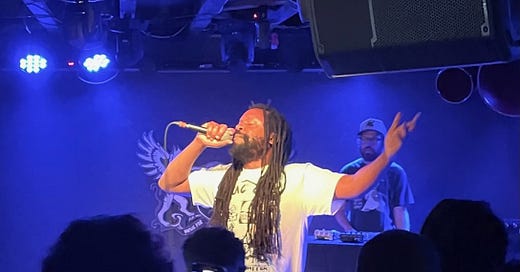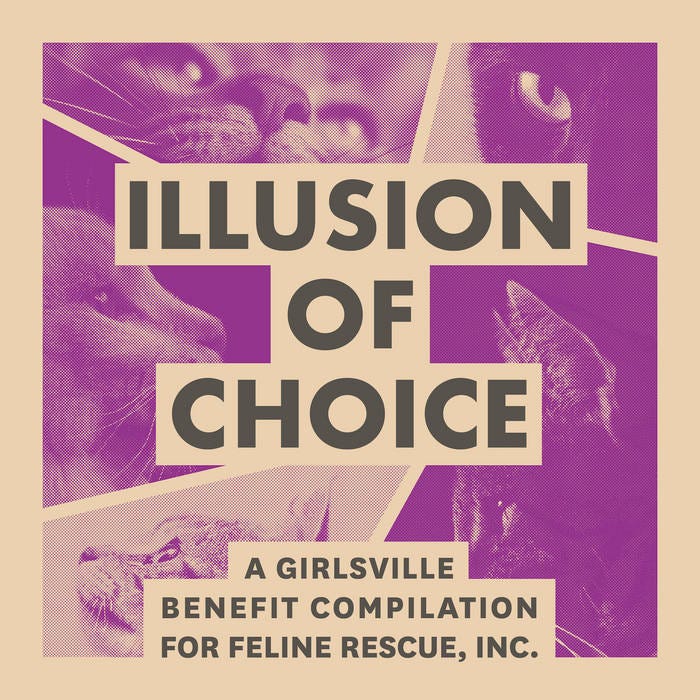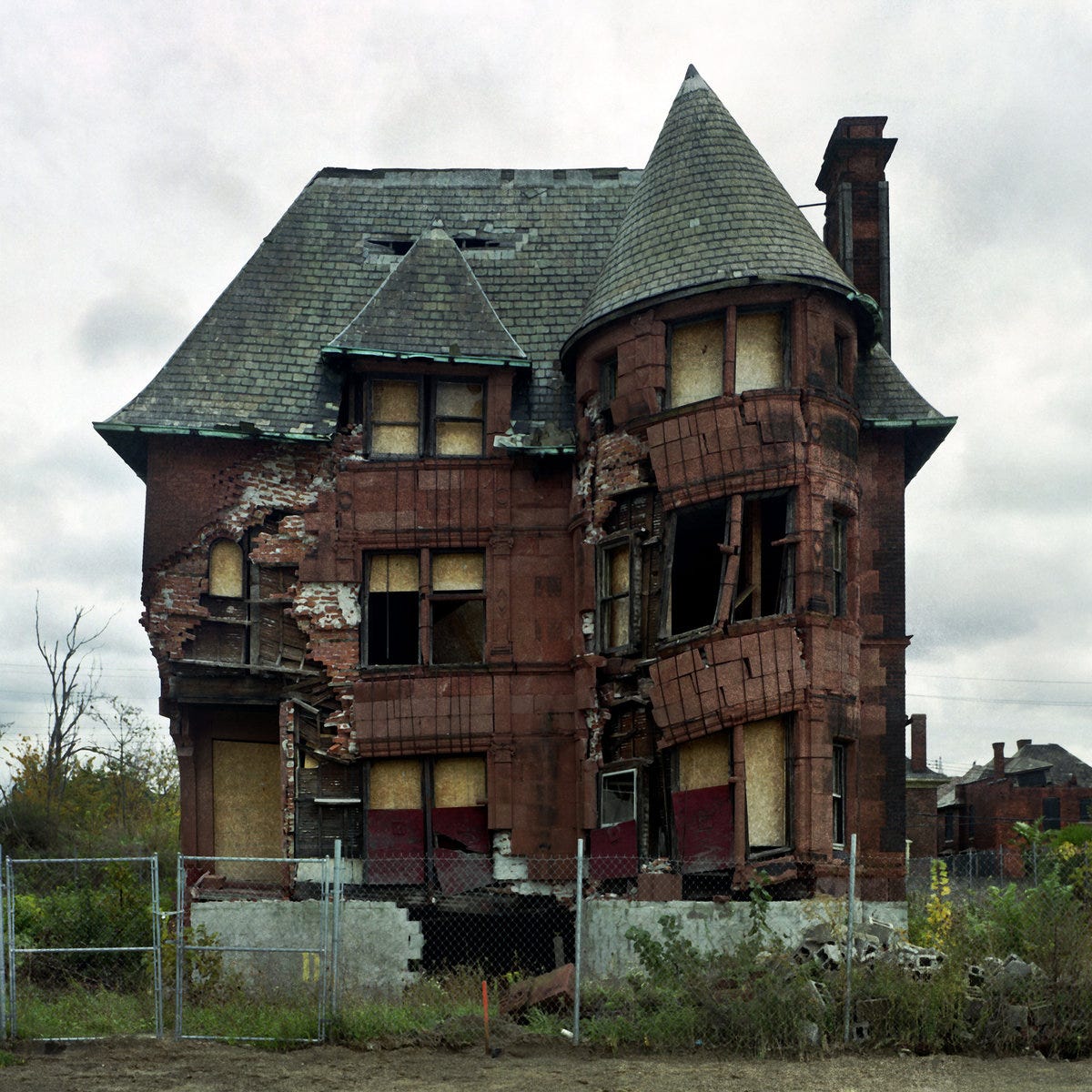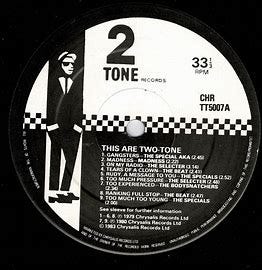Father's Day Special: Second-Wave Ska, Billy Woods, and 10 Great Indie Records
It’s Father’s Day weekend, and what better way for 6OGs to spend it than yammering on about the music we love? Less interested in ties, golf clubs, and whatever it is they sell at Home Depot, the 6OGs are looking for vinyl, a gift card to a local club, and our kids listening to something besides the last thing they came across on TikTok. Crate digging with dad while talk about obscure names in the liner notes, perhaps? So, gather ‘round, kids; that’s what the OGs have in store today – a fairly lengthy post on some well-below the mainstream and social media radar gems from indie rock (through a quick list of some recent albums that deserve a spin), “underground” hip-hop, and second-wave ska.
New album(s): Being Father’s Day, we are going to break the rules and do a bit of a sweep of 10 recent indie rock albums that you should check out. Despite predictions of the death of music made up of guitar, bass, and drums, the heart of rock and roll is still beatin,’ as another old guy once sang and as we tried to make clear in our last post. We won’t have time to write about all of them, but well, us Old Guys need to jot them down somewhere so we don’t forget (now, if only I could find my keys):
Illusion of Choice (Compilation) by Girslville Records – Incredible collection by some of the best indie bands around, including Sweeping Promises, Star Party, UV-TV, Friendzy, and the Darling Buds
Girl with Fish by feeble little horse – Somehow the second great, catchy, and melodic indie collection from this Pittsburgh band (quite a scene in the Steel City right now) in less than a year
Shattered Shine by Silver Car Crash – A bluesier, dirtier version of indie rock from the ‘burgh
Motorbike by Motorbike – Cincinnati is also in the midst of a boom in indie classics
These Hazy Frames by Rosegold – Mysterious band from “Pennsylvania” that makes enticing and ethereal tracks
Hallucinate Me by TV Star – The Seattle band lives up to the album title with a cool mix of psychedelic yet jangly tunes
New York City by The Men – The veteran band comes back with an in-your-face set of tracks
In the Wilderness by the Toads – A sharp set of post-punk from what I maintain is the world’s best rock scene of Melbourne, Australia
Et cetera, etc by dust – Cool collection that feels hard to pin down from Newcastle, another great scene in Australia
Agitator by Buddie – Did I also mention there is a cool scene in Vancouver? Buddie is right in the middle, among the best examples of the aptly-named “bubblegrunge” subgenre (Brad)
Album from an upcoming/recent live show: Hiding Places by Billy Woods. In this Year of Our Lord 2023, what does “underground” even mean in music? In the past, of course, the term meant music that was hard to find or connect to – put out on a small label with limited (or just bad) distribution, a regional artist who didn’t play out very much, or rooted in a sound that was disconnected from anything else around it. As Old Guys, we remember such times fondly, like when we can explain to our kids that a time existed when parents didn’t have the ability to track their kids’ whereabouts or scroll through camera rolls to see what bad decisions they’d made. In other words, we had places to hide, and so did artists – even whole music scenes.
Somehow, Billy Woods still feels underground, even though you can find all of his music online, see him on tour around the world, and read about him in multiple languages. And with the critical acclaim of Maps, his recent release with producer Kenny Segal, it seems all but assured that Woods will become better known and a shoe-in for Best of 2023 lists. But spend any time with his music, and it’s hard to think of a better term than “underground” to describe it. It’s dark but not remote, direct but not mean, vulnerable but not trite, honest but far from a cliché.
Like the best MCs, Woods paints remarkable pictures of the everyday experience and connects parts of life and the globe that often have no business being in the same album, let alone the same song. That has been true on every one of his records, but none more than 2019’s Hiding Places, his first collaboration with producer Kenny Segal. Take “Spongebob,” the opening track. Set over a spare and haunting track, his words come in hard but not loud. In the first verse alone, he goes from a mosh pit to Mao’s designs on Taiwan to slave ships to Saddam Hussein’s murder. The two key lines, though, and perhaps his underlying ethos on most of his albums (though less so on Maps) come just before and in the refrain:
First he puts a classic songwriter and trope in place: “That-that Bill Withers/N***** had the nerve to say you can’t take it with you/What the Fuck would I want with any of this shit?/Dummy”
Then he goes literally from the absurd to the most sublime, spiritual, and angry place: “Spongebob, the whole operation underwater/’It’s only one God,’ what we said in Tora Bora/The bombs was on us, the bombs was on us/Came back to God like ‘Motherfucker, you promised, you promised.”
From this frame, he goes on to rap about the pain of a mother dying on another continent and only being able to keep updated through recharged phone cards. It’s hard to think of another MC who could take you from Spongebob to Afghanistan to the essence of human spirituality and faith in one chorus without sounding glib or stupid or just out of their depth.
Woods feels like the guy with the flashlight leading the way through, and maybe someday out of, the underground. Or helping everyone above ground find their way down to join him.
The album carries on as a piece; as the title says, Woods is searching for, finding, and then exposing those dark hiding places we all simultaneously search for and look to escape from (just check out the album cover below, and you’ll get it). Opening notes of each track that set the atmosphere and emotional place, with lyrics that keep to the core theme but paint these multifaceted pictures, mixing hardcore reality and a sly wink. On “Checkpoints,” he opens with “If I haven’t heard a word in 10 years/Assume me dead/Or guest to the feds/Or cultivated a better class of friends.” Then “Spider Hole” contrasts street violence in New York with National Geographic-esque voyeurism with reflections on what it takes to survive each day. But then again ties it all together with a wink – “Wry smile, coppin’ legal weed from fake hole in the wall/I don’t want to go see Nas with an orchestra at Carnegie Hall/No man of the people, I wouldn’t be caught dead with none of y’all.” “Bedtime” is a remarkable track exploring dreams and the reality for kids growing up with parents missing. “Speak Gently” uses metal guitar and free jazz music to create a more dystopian feel and lines like “My Hasidim on Broadway, a Debbie downer/Sonny Corleone on the causeway, easy pass past the cowards.” And on “Red Dust,” he sums up what feels like his moral of the whole record – “If you live, sometimes, it’s best just to circle the block;” though every line in this track feels like it deserves to be quoted as his overall philosophy and view of life.
The other track that merits more citation and reflection is “Crawlspace,” which features Elucid (with whom Billy forms the project called Armand Hammer) and feels like his summary of the state of the country. After going through more life on the streets, he hits at Donald Trump (“His character boorish, bravado without the courage/Mar-a-Lago, hollow the minute he nutted”). With a summary line of “This is America/It’s not for the weak of stomach,” he goes on to explain, “The news is all mergers/State murders, the indictment of public servants/Couple lines on former offensive lines, sordid demise/I bookmarked it for later/Doormen direct me to the service elevator.” Later in the track, he connects the condition of America to Rwanda in 1994: “Smiles is all razors though/Eyes is lasers, scanned the name tag/For the day we checkin’ tutsi’s papers/State news station says statements are outrageous/But can’t deny the charm rakish though/Whatever it takes to make the playlist.” In the end, what’s wrong with being in the underground when what’s on the surface is so corrupted?
Billy’s flow is fairly consistent in tempo and emphasis but somehow is never boring. Live, even moreso. I’ve had the chance to see him twice in the last 9 months, and the songs from 2019’s Hiding Places are the tracks that have stood out each time. The thing about Billy Woods live that also makes it clear he’s in – even defines -- the underground is the urgency. Despite wordy and not exactly pop-friendly lyrics, the crowd is with him in every track, joining him in the exclamations of key lines. You hang on every word, laugh at the dark humor of it all, even as you also want to recoil.
Like any proper such scene, Woods is not alone in the underground – Quelle Chris, Open Mike Eagle, ShrapKnel (who opened the most recent Billy Woods show in DC), the aforementioned Elucid, Moor Mother are all in the shadows with him, occupying different corners and elements of the sound and collaborating with him. I’ve had the privilege to see most of these acts, and Woods feels like the guy with the flashlight leading the way through, and maybe someday out of, the underground. Or helping everyone above ground find their way down to join him. (Brad)
Album being rediscovered (at least 10 years old): This Are Two Tone (compilation). I spent the summer of 1991 after my freshman year of college working as a counselor at Camp Echo, a sleepaway camp in upstate New York. As was common at the time, many of the counselors were from the UK. On the first day, as we were getting to know each other before the kids arrived, a fellow counselor from Scotland was thumbing through the cassettes that I brought (my car at the time – a white Mitsubishi Galant bought used - didn’t have a CD player). He pulled out one tape, absolutely shocked that it was in the possession of a slightly nerdy American kid trying to look cooler in a “PiL” t-shirt. I still remember him sitting on my bunk, looking at that cassette, and saying excitedly, “Oh! This Are Two Tone!”
2023 marks the 40th anniversary of This Are Two Tone, a compilation album showcasing the most iconic artists from 2 Tone Records, an independent English label founded in 1979 by Jerry Dammers, keyboardist for The Specials that promoted and released music from ska, reggae and punk-influenced acts from 1979 to 1986. The 2 Tone bands, especially those included on This Are Two Tone, formed the basis for what came to be known as second-wave ska. Say what you will about celebrating the anniversary of a compilation album, but this one is, put simply, fucking rad.
This Are Two Tone, like 2 Tone Records itself, literally begins and ends with The Specials. Opening track “Gangsters” is a ska classic about the hazards of being a touring band. Album closer “Ghost Town” is a more downbeat song about how the politics of Margaret Thatcher negatively affected industrial cities throughout England, a common theme for The Specials and the rest of the 2 Tone bands (the record label’s name was a response to racial tension during the Thatcher era). As would be expected, The Specials feature prominently on This Are Two Tone – “A Message to You, Rudy” and “Too Much Too Young” are from their phenomenal self-titled debut album and among the best ska songs ever. Also included from their less heralded second album, More Specials, are “Stereotype” and “Do Nothing,” both of which deviate from the high-energy ska of their debut – the former with a slower, funkier rhythm, and the latter approaching more of a straight reggae sound.
2 Tone bands are both vital and fun, and they are a relic of a pre-internet time when the world was bigger and music could represent a specific region, city or country. As a kid discovering music in the ‘80s, these songs sounded like what I pictured Great Britain to be.
This Are Two Tone also features three songs by The Selecter who, like The Specials, were a ska band from Coventry and one of the first bands to sign with 2 Tone. “Too Much Pressure” is arguably The Selecter’s best song and a banger. “On My Radio” showcases singer Pauline Black and a killer bass line. “The Selecter” is an instrumental that evokes the feeling of walking down a foggy London alley well past midnight.
The Selecter never made it big in the US, but This Are Two Tone has contributions from two bands that started on 2 Tone before succeeding across the pond and changing their sound. Madness scored a big hit in the States with the not-ska “Our House,” but the song that’s included on this album (also called “Madness”) is a playful ska number that tells you who these blokes really are, and that was glimpsed again later when they released “One Step Beyond.” The English Beat add two songs to the mix – “Ranking Full Stop,” featuring masterful toasting from Ranking Roger, and their excellent cover of “Tears of a Clown” with Dave Wakeling on lead vocals.
The hidden gems of this compilation are provided by some of the lesser known artists. The Bodysnatchers’ “Too Experienced” is like a soulful, funky wall of Caribbean-influenced sound, while The Swinging Cats’ “Mantovani” is pure kinetic energy. “The Boiler” by Rhoda Dakar, who had been the lead singer of The Bodysnatchers, is one of the more interesting songs on the album – talk-singing about self-esteem over a ska beat.
Roughly seven years after This Are Two Tone, ska became decidedly uncool with the rise of third wave. Where 2 Tone was the music of hipster urban English youth, despite a handful of outliers (props to Operation Ivy, Jeff Rosenstock) third wave ska was mostly characterized by snotty suburban Orange County kids. I guess you could blame The Specials, The Selecter, and the rest of the 2 Tone bands for giving us Sublime, Reel Big Fish, and Goldfinger, but they also gave us bands like The Toasters, Let’s Go Bowling, and Hepcat, all of whom carried on both the 2 Tone ethos and sound.
For some music fans, ska is a nonstarter. I get it; it can seem frivolous. As a fan, even I roll my eyes at the dudes who attend ska shows dressed in suits and shades like it’s a musical comic-con. But the 2 Tone bands are both vital and fun, and they are a relic of a pre-internet time when the world was bigger and music could represent a specific region, city or country. As a kid discovering music in the ‘80s, these songs sounded like what I pictured Great Britain to be. And as a college student on summer break, a shared interest in This Are Two Tone introduced me to a friend that I unfortunately lost touch with soon after going back to school – again, the lack of internet making it easy to lose track of people from another town, let alone across the Atlantic.
Whether you’re a fan or a skeptic, give This Are Two Tone a listen. 40 years later it’s still a thoroughly enjoyable experience, and essential to understanding the music it influenced. (Brian)







